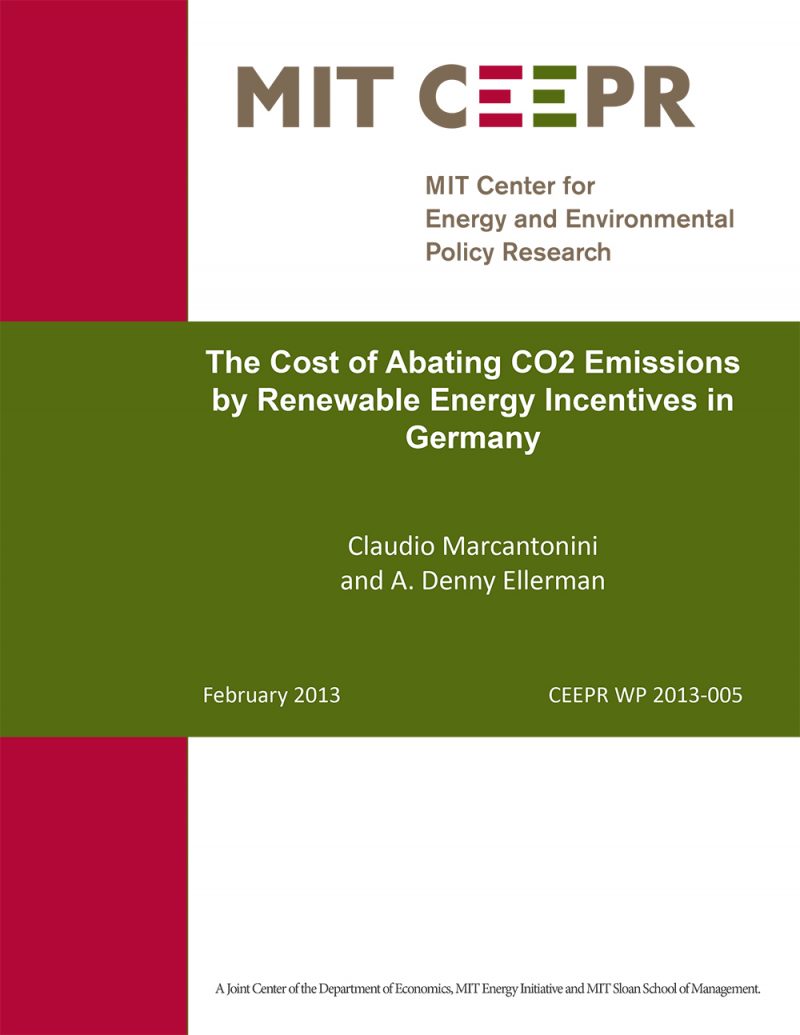The Cost of Abating CO2 Emissions by Renewable Energy Incentives in Germany
Claudio Marcantonini and A. Denny Ellerman
February 2013
Incentives for the development of renewable energy have increasingly become an instrument of climate policy, that is, as a means to reduce GHG emissions. This research analyzes the German experience in promoting renewable energy over the past decade to identify the ex post cost of reducing CO2 emissions through the promotion of renewable energy, specifically, wind and solar. To this propose, we calculated the annual CO2 abatement cost for the years 2006- 2010 as the ratio of the net cost over the CO2 emission reductions resulting from the use of renewable energy. The net cost is the sum of the costs and cost savings due to the injection of renewable energy into the electric power system. Results show that CO2 abatement cost of wind are relatively low, of the order of tens of Euro per tonne of CO2, while CO2 abatement cost of solar are very high, of the order of hundreds of Euro per tonne of CO2. CO2 abatement cost has changed considerably over the years due to variations of fossil fuels prices, carbon price and the amount of generated renewable energy.



